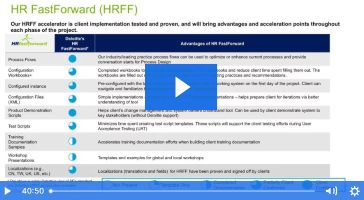Employee trust with business leaders ‘plummets to new lows’: SAP SuccessFactors whitepaper
Meet the Authors
Key Takeaways
⇨ Employees are reeling from change-induced stress, burnout and disconnection, so trust in leaders is eroding
⇨ Organisations are also less likely to be as generous with compensation and benefits this year due to economic factors
⇨ Skill shortages will force employers to search talent from historically underpaid and excluded groups
Trust in business leadership among employees has “plummeted to new lows”, according to an SAP SuccessFactors whitepaper, citing change-induced stress, burnout and disconnection.
The whitepaper, called 2024 HR Trends: The Year of AI, urges organisations to focus on “building a trusting, communicative relationship” between employees and leadership. SAP SuccessFactors said leaders risk fracturing an already fragile trust if changes are not communicated well and employee feedback on those changes are not acted on.
“The need for leaders to communicate effectively will be tested in 2024, particularly in the face of significant organisational shifts such as layoffs and AI integration. This is further exemplified by increases in collective action seen globally over the past year,” the paper read.
Explore related questions
“In the absence of organisational channels through which to share their frustrations, employees may feel the need to engage in activism such as airing their grievances on social media, signing petitions, forming labour unions, and even striking to ensure their voices are heard and leaders respond.”
This erosion in trust can also expose the risk of organisations losing top talent amid ongoing talent and skill shortages, so the paper said HR departments will be looking to address that lack of trust by cultivating an environment that ensures top talent feels valued and decides to stay.
Employees are also looking for meaning and purpose in their work, ranging from a macro level where they feel they make a difference on society, down to the individual level where they want to feel that their contributions are tied to the organisation’s larger mission.
“The current dearth of leadership trust may leave employees feeling less valued and less connected to the larger mission of their organisation than in previous years,” the paper read. “If employees’ search for meaning is not fulfilled, they may consider looking at other job opportunities where those needs can be met.”
SAP SuccessFactors presented opportunities to help restore that trust through technology, like helping define, communicate and track employee objectives; investing in learning opportunities for potential leaders; and keeping better track of the employee experience.
Compensation expected to take a hit
Another trend identified by SAP SuccessFactors is compensation taking the spotlight for organisations, citing continued economic uncertainty, organisational restructuring and layoffs, increased costs of living and elevated inflation and interest rates.
“Experts have considered recent wage growth in past years to be unsustainable, and unfortunately, trends predict that we’ll see a notable decline this year in total compensation as some organisations (particularly in certain industries such as high-tech) attempt to ‘rebalance’ their compensation costs in 2024,” the paper read.
“Following the boom of new benefits to attract talent in the tight job markets of 2021 and 2022 (for example, parental leave, adoption assistance, and mental health care), we expect to see organisations backtrack on not only their benefits offerings, but also equity, incentive-based pay and even base salaries.”
SAP SuccessFactors also highlighted the rise of partial and full return-to-office policies, with organisations are expected to provide compensation and benefits that address employee logistical concerns (e.g. transportation costs) and “personal costs” associated with changing their work arrangements. These may include lack of flexibility, lack of work/life balance and additional caretaking duties.
Calls for pay equity and pay transparency are also ramping up, with the introduction of legal frameworks like the EU Pay Transparency Directive, as well as employees’ expectations for fair, equitable and transparent pay.
“Trends indicate that once considered provocative approaches like providing salary ranges on job postings will now be considered minimum expectations for attracting top talent,” the paper read.
SAP SuccessFactors said technology can help by ensuring payroll is timely and accurate; help managers prepare and conduct employee feedback, development and compensation discussions; and a convenient way for employees to access their information like role, performance, compensation, benefits and more.
Other areas to improve upon
Diversity, equity, inclusion and belonging (DEI&B) has taken a hit funding-wise for some organisations, according to SAP SuccessFactors, but 2024 is still trending positively due to an ageing workforce and limits on immigration.
Organisations are rethinking how they find talent and recognise where bias and exclusion exist in their recruitment and selection practices, so this year is trending towards the recruitment of people from segments that have historically been underpaid or even excluded from employment due to unfair practices. These include caregivers, retirees, neurodivergent professionals or skilled and experienced professionals without university degrees.
There are opportunities to use technology to help reduce unconscious bias in the hiring process, like using AI to enhance job descriptions and interview questions, as well as using analytics to have a real-time view across the organisation’s personnel.
Mental health is another area that organisations should focus more on as part of their well-being efforts in 2024, with pressures coming from constant organisational change and finances cited as some contributors to poor mental health.
SAP SuccessFactors said trends suggest that well-being offerings should take a more individualised approach, adopting a quality over quantity mindset. This means considering the benefits that are most aligned with employee needs and values, as well as communicating those benefits to employees.
AI and skills top HR trends
The paper placed artificial intelligence as the top trend in the HR sector in 2024, particularly with how it has transformed and how it will transform workplaces.
HR use cases are plentiful, particularly in talent acquisition, but organisations are also still concerned about data privacy, ethics and regulatory compliance.
Along with the rise of AI needs within organisations is the need to respond to determine what AI skills are needed, who has those skills and how to fill skill gaps.
The paper said traditional top-down HR approaches fail to address employee’s increasing expectations for flexible and personalised career development, so HR departments should meet growing expectations for bespoke career paths while also filling skill gaps and talent shortages.
The HR function is also set to undergo its own skills transformation in some areas, with AI also at the top of the list, but also less conventional ones like public relations. Analytics will also continue to be another in-demand skill in 2024, with an additional focus on attention to and compliance with data privacy requirements.
Flexible workplaces
The past few years have seen organisations transform how their employees work, with the hybrid work topic evolving from initially being a reaction to protect health and safety to becoming primarily about flexibility.
The 2023 paper reported an increase in partial and full return-to-office policies, but this year organisations are warming up again to hybrid, although with a focus on work location rather than a broader perspective centred on flexibility.
Companies will also continue to experiment with ways to get employees to return to the office aimed at promoting productivity, collaboration and cost savings while also ensuring they retain top talent. Some however are focusing more on redesigning the nature of work rather than mandating where or when work gets done.
Sustainability as an organisational strategy
Environmental, social and governance (ESG) reporting requirements and transparency expectations are also on the spotlight, according to SAP SuccessFactors, but trends are showing that sustainability is also being leveraged in employer brand and HR strategy execution.
HR policies will be expected to see more eco-friendly practices, and HR departments will also provide employee training on understanding organisational sustainability goals and new technologies or practices to improve sustainability.
“Green” skills are also observed as a trend, like environmental science and eco-design, which are expected to be part of recruitment and workforce planning efforts. HR will also play a role in ensuring new hires have values aligned with the organisation’s sustainability goals, as well as leading reskilling and upskilling initiatives for existing staff.
Technology can provide organisations a single source of accurate people data that can be used for ESG reporting, as well as identifying new skills required to support sustainability initiatives and how to obtain those skills.
Learn the real-world impact of HR trends
Join the discussion on leading edge HR and key trends like these from local and international speakers at Mastering SAP Collaborate in May.
Sessions feature speakers from Microsoft, New Zealand Rugby, AGL, Officeworks and more, exploring the real-world impact of SAP SuccessFactors and other SAP solutions.
NZ Rugby will delve into how SAP SuccessFactors enhanced its DEI&B efforts, while AGL will discuss its SAP-powered Mental Health Incident Management App. Australia’s nuclear research body, ANSTO, will share how SAP SuccessFactors helped with integrated talent management and data-driven decision-making.
Microsoft Director of HR digital strategy and Innovation Divya Sharma will detail how AI in HR was important to their global personnel project, CS Energy’s Future Career Pathway Manager Laura Burge will discuss workforce management. The Australian Payroll Association Head of Members Services, Jasmine Fernance, will explore the legislative environment and how organisations can remain compliant.
Register for Mastering SAP Collaborate now so you don’t miss out on these amazing sessions and customer success stories!








